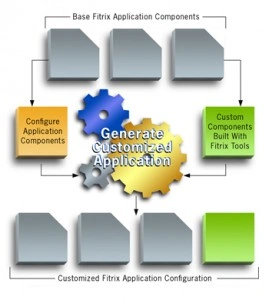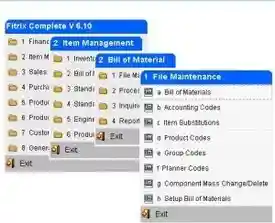Discrete Manufacturing
Make-To-Order Manufacturing
This includes manufacturers who build and stock all of the product’s components anticipating a customer’s order. When ordered, the final product is assembled and packaged. The Make-To-Order process stocks the components used in the final product, at the subassembly or at the raw material level. When ordered, they are configured into the deliverable product.
The needs of these types of manufacturers can be complex. They often require variable bills of material, an advanced product configurator, and forecasting and scheduling capabilities at the subassembly level.
Make-To-Stock Manufacturing
This category includes discrete manufacturers that produce specific items such as computers, appliances, automobile parts, etc. Usually, each item is made through the assembly of component parts. These manufacturers might make to stock, make to order, or both (mixed mode manufacturing). Make-to-stock items are typically completed before an actual customer order has been received. The finished product is then kept in inventory or warehoused until receipt of an order. These types of manufacturers find that the availability of raw materials, production costs, and lead times are critical success factors.
Engineer-To-Order Manufacturing
These types of manufacturers produce goods that require specialized engineering design or considerable customization. Often, a different set of part numbers, bills of materials, and routings is created for each customer order. Engineer-to-order manufacturers highlight their design capabilities in addition to their manufacturing capacity, quality control, and adherence to schedules. As a result, they are partly manufacturers and partly design consultants.
These types of “projects” can run for many months or even years. The manufacturer frequently invests significant engineering time and resources to respond to formal bids. Once the job is awarded, the client and the manufacturer jointly finalize the project’s details and production begins.
Job Shop Manufacturing
Job shop manufacturers use a combination of repeatable and variable production methods. Production runs are often limited runs or limited numbers of items. In many instances, the customer provides the manufacturer with all or most of the product’s engineering specifications. Sub-categories of job shops include jobbers and custom crafters (or fabricators). Jobbers usually add value to materials provided by their customers. Custom crafters possess the skills and equipment to process certain types of materials to meet specific requirements.
Challenges to these types of manufacturers include their production capacity and ability to maintain quality and time schedules.
Fitrix ERP: a Complete Back-Office Software Solution
Fitrix ERP offers a complete back-office software solution with everything you need to run your business including:
Manufacturing Modules:
- Bill of Material
- Production Order Processing (including job shop)
- Standard Routing
- Material Requirements Planning
- Standard Costing
- Capacity Requirements Planning
- Master Scheduling
- Production Scheduling
- Labor Processing
- Product Configurator
Distribution and Supply Chain Modules:
- Order Entry
- Inventory Control
- Inventory Replenishment
- Purchasing
- Customer Relationship Management (CRM)
Accounting Modules:
- General Ledger
- Accounts Payable
- Accounts Receivable
- Multi-currency and Multi-level Sales Tax
- Payroll
- Fixed Assets


